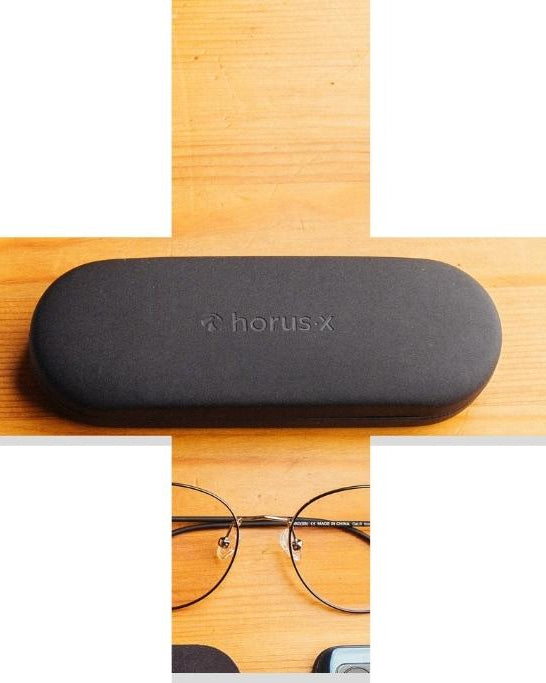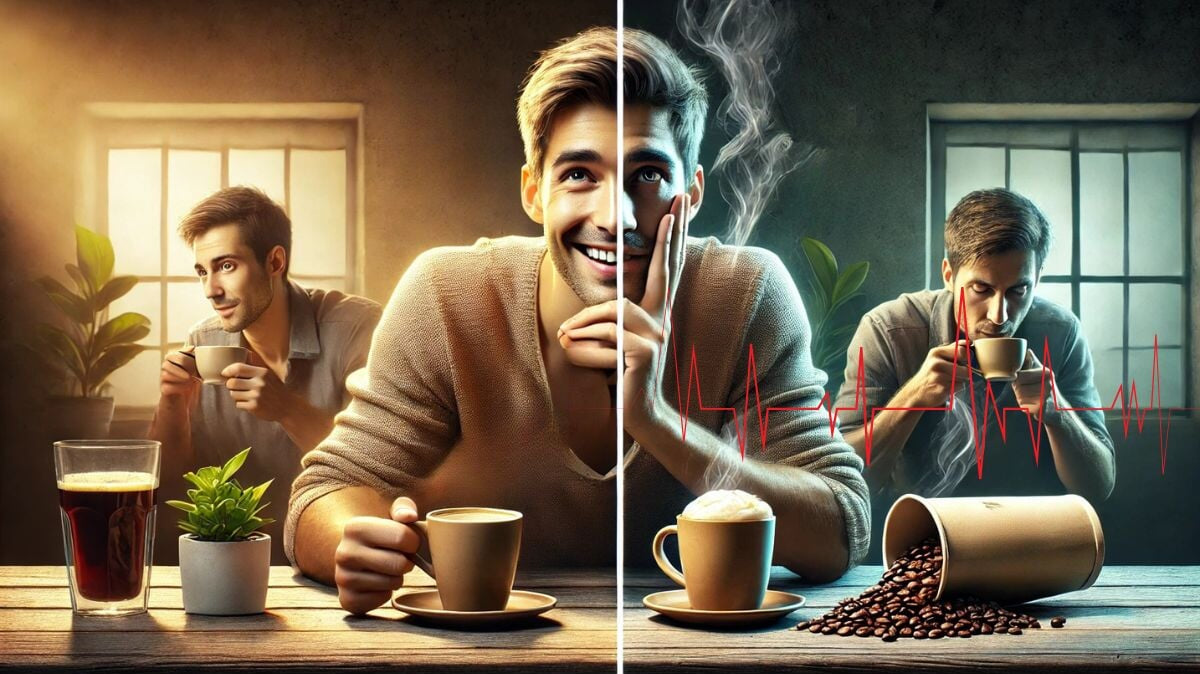At Horus X, we take care of the health of gamers and everyone else, with our eye-protecting glasses and our blog advice .
And there is a question that often comes up among Horusians: are Red Bull and other energy drinks dangerous for your health ? And do they have benefits for increasing concentration at work or your ability to chain headshots?
The answer in the following lines!
⚡ Energy drinks and energy drinks: what’s the difference?
Energy drinks and energy drinks are often confused, the category that Redbull falls into. While energy drinks are drinks dedicated to the practice of a sporting activity by providing water, sugar, vitamins and minerals, energy drinks are too sweet and not hydrating enough to be used for sports.

By the way, the term energy drinks mainly refers to drinks with exciting properties and not strictly speaking energizing. The famous Red Bull slogan that "gives you wings" has nothing to do with the energy that a sports drink could give but rather with the stimulating side of the caffeine contained in your can!
📚 The story of a controversial energy drink
Where does Redbull Energy Drink come from? If you didn't know, it's an energy drink marketed by the Austrian brand Red Bull, inspired by a sweet Thai drink based on taurine and caffeine called "Krating Daeng" which can be translated as "red buffalo".
Since its creation in 1987, the famous energy drink has been controversial : some countries have even banned it on their territory as a precautionary principle. The classic recipe was even banned in France from 1996 to 2008. Before that date, the drink marketed in France was an alternative based on arginine.

The brand, for its part, surfs on the rebellious, "extreme" and stimulating side of its flagship drink, highlighting its exciting effects to surpass oneself. It loves to invite itself into the world of sport and e-sport to associate itself with surpassing oneself.
And its success, driven by monstrous marketing, has inspired armies of competitors: energy drinks have invaded supermarkets.
🧪 Composition of Red Bull: a soda, not a miracle formula
So what exactly is Red Bull and what exactly gives it that “boost” effect? To understand this better, let’s take a look at the list of ingredients in a 250 ml can of Red Bull Energy Drink:
-
☕️ 80 mg of caffeine , the same amount of caffeine as a 40 ml double espresso.
-
🐂 1000 mg of taurine , an amino acid naturally present in the human body and foods rich in animal protein.
-
🎂 27.5g of sugar , or 5.5 sugar cubes per can. There are versions where the sugar is replaced by sweeteners.
-
🧪 600 mg of glucuronolactone , a chemical compound naturally produced in the human liver by glucose metabolism . This product is used as a stimulant but is also suspected of being toxic to the kidneys in high doses.
-
🜛 B vitamins : 20 mg of vitamin B3 (niacin), 5 mg of vitamin B5 (pantothenic acid), 5 mg of vitamin B6, 1.5 mg of vitamin B2, 0.05 mg of vitamin B12. One can of Red Bull is enough to cover the recommended dietary intake (RDI) of vitamins B2, B3, B5. With two cans, you exceed the RDI threshold for these vitamins, but also for B6 and B12. These needs can be covered by a balanced diet, no need to exceed the recommended dose.
-
🧬 20 mg of nicotinic acid : this is a component similar to vitamin B3. It is already naturally produced by your liver, so there is no recommended nutritional intake. However, the safety limit is set at 33 mg per day. According to VIDAL , a high dose of nicotinic acid exposes you to many side effects such as hot flashes, digestive problems, headaches, increased risk of diabetes or liver damage.
-
🌈 Other components such as colorants, flavors and acidity regulators.
In short, the composition is similar to that of soda , with the only difference being the presence of vitamin B and taurine. And the positive and negative effects of taurine are still poorly understood.
🐮 Focus on taurine: question marks, nothing else
Apart from the high dose of sugar, the ingredient that is the subject of debate is mainly taurine. This is a neurotransmitter involved in particular in cardiac and muscular activity.

While Red Bull highlights the fact that it is a compound naturally present in the human body and in food, it should be noted that despite its boosting action, it can have undesirable effects at high doses.
In the medical context, taurine has several uses, observed as a food supplement but never through the ingestion of an energy drink:
-
Decrease in LDL cholesterol (also called “bad” cholesterol) levels
-
Increased HDL cholesterol (the “good” cholesterol) levels
-
Liver detoxification, particularly through better digestion of lipids
-
Improved vitality and performance
-
Reduction of blood pressure
-
Regulation of heart rate
-
Decreased anxiety
However, the research on taurine has been done on dietary supplements, which come in different concentrations than Red Bull and other energy drinks. No studies have looked at the effects of taurine in energy drinks , we just know it's there, and maybe it does something, maybe it doesn't .
💡 Note: Taurine is a so-called non-essential amino acid and it can be synthesized by your body (it is called an endogenous compound, thanks to us, you will be able to tell yourself about it in the evening). You therefore do not need dietary intake of taurine, especially when we know that its elimination in case of excess is done by the kidneys, imposing an overload of work on them.
So there's no point in counting on Red Bull and its competitors to improve your sports performance, your concentration when you revise or your reflexes in front of the console: energy drinks have no proven effect beyond caffeine .
☢️ No real benefits, but risks if abused
Beyond a certain dose, energy drinks can have adverse effects, some of which are still being studied:
-
Increased risks of diabetes and obesity due to their high sugar content
-
Digestive disorders
-
Thyroid dysfunctions
-
Cardiovascular disorders : chest pain, tachycardia, hypertension
-
Neurological side effects : irritability, tremors, anxiety, epilepsy
Since 2008, ANSES (the French National Agency for Food, Environmental and Occupational Health Safety) has set up a nutrivigilance system to report and list the adverse effects of energy drinks. To date, more than 200 cases of adverse effects have been reported.

These symptoms usually appear when the consumption of these drinks is too high and too frequent. And it's not just one of the ingredients that is to blame: it's the combination of high levels of sugar, caffeine and other stimulants that would snowball and could represent (in the long term) a risk to your health .
❤️🩹 Recommendations for responsible consumption
In the end, energy drinks are a bit like everything else: not too many! One from time to time is fine, but more than that, and you're in for some damage.
250 ml of the famous Red Bull drink certainly contains as much caffeine as some cups of coffee, but also more than 5 sugar cubes and a dose of stimulants bordering on the daily limit allowed. Moreover, if only to sleep better at night , we also advise you to limit your caffeine consumption.
In addition, the consumption of these energy drinks combined with alcohol in certain cocktails that are very popular with young people would also present a health hazard. Indeed, this synergy would expose people to certain undesirable effects such as nervous system disorders and increased blood pressure. Dangers of alcohol + danger of energy drinks = FBI, false good idea!
Faced with these risks, the health authorities have established a list of advice and contraindications regarding the consumption of these drinks :
-
🤾 Avoid consuming them before or during physical activity (prefer water or an energy drink instead)
-
🥃 Don't combine them with alcohol
-
🚫 Cross it out if you are part of the “at risk” categories: children, adolescents, pregnant or breastfeeding women, or those with a history of cardiovascular, neurological, hepatic, renal or psychiatric disorders.
💡 Please note: Since 2008, the Ministry of Health has banned the consumption of energy drinks in elementary and secondary schools.
🥤 The Final Word - Energy Drinks: Sodas, Not Magic Potions
-
The sophisticated marketing of energy drinks claims that they provide energy. In reality, they are just sodas that rely mainly on a good dose of caffeine to give you a kick in the butt.
-
Energy drinks have no proven effect on concentration or energy levels. And they are too sugary to be used for sports. They are even said to pose health risks if consumed in high doses.
-
Due to their possible side effects and contraindications, we recommend that you consume them in moderation. As with any soda, a Red Bull from time to time won't hurt, but avoid them if you are part of the at-risk population.
-
Finally, Red Bull and other energy drinks are very popular as mixers, but it is strongly recommended not to take them with alcohol. Exit Jagerbomb or vodka red bull.
















